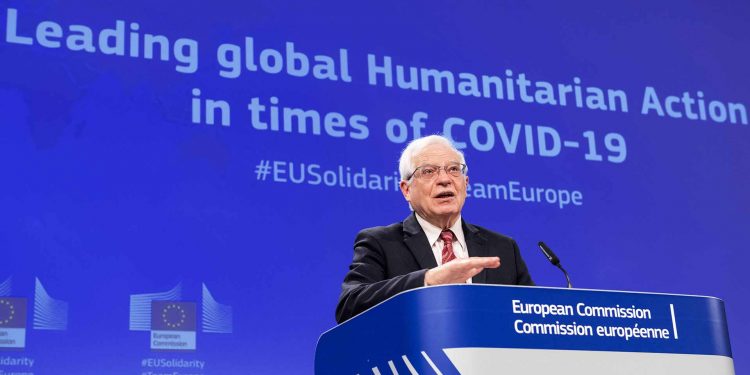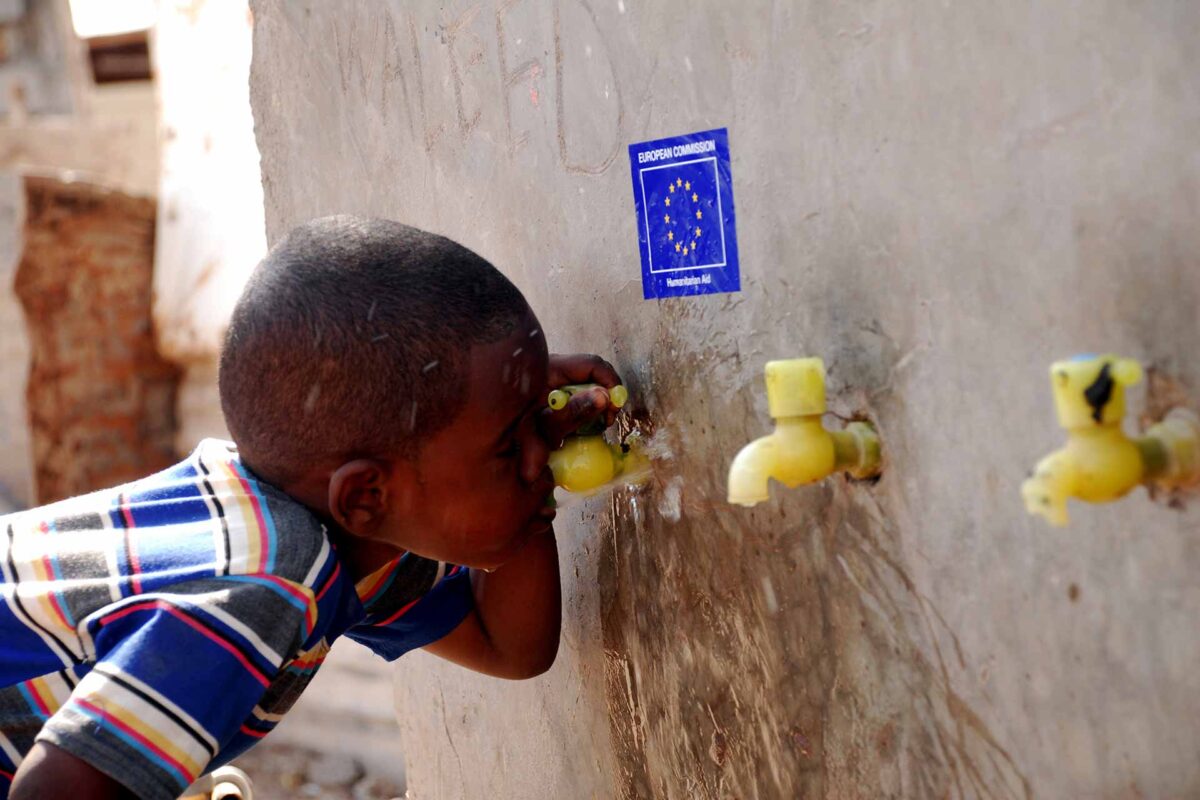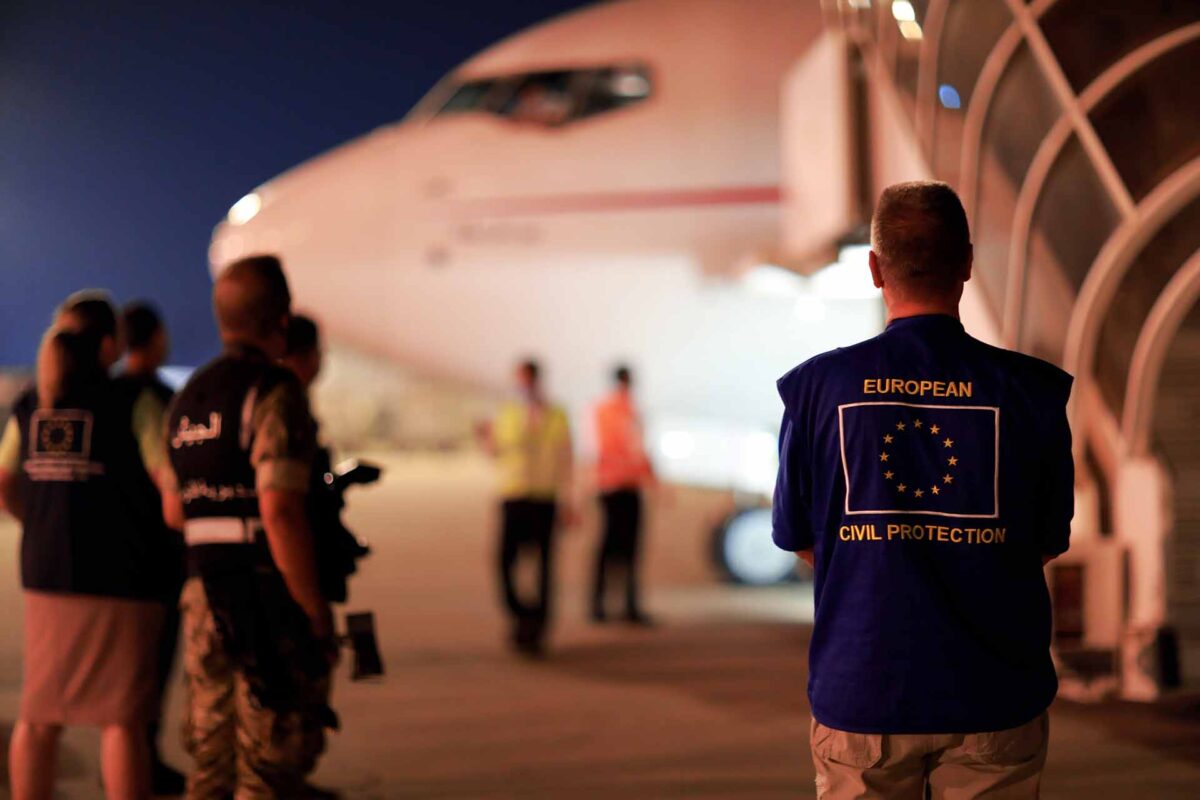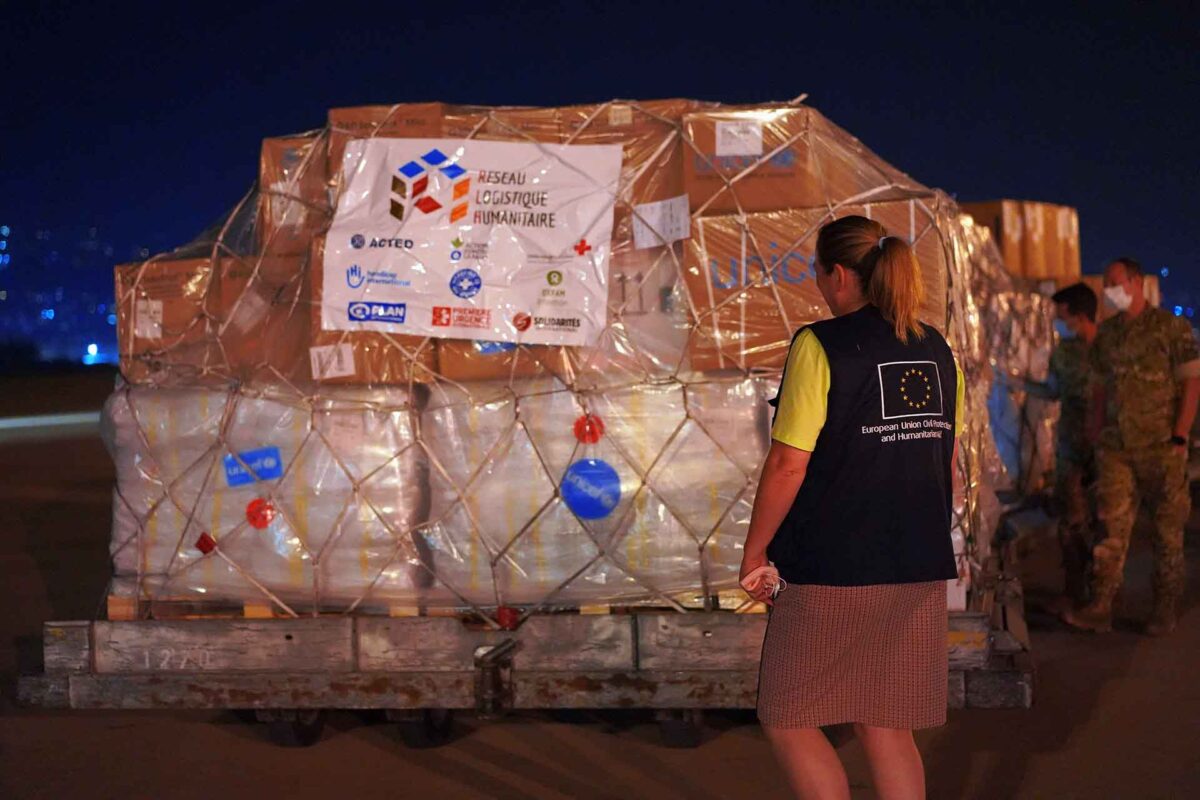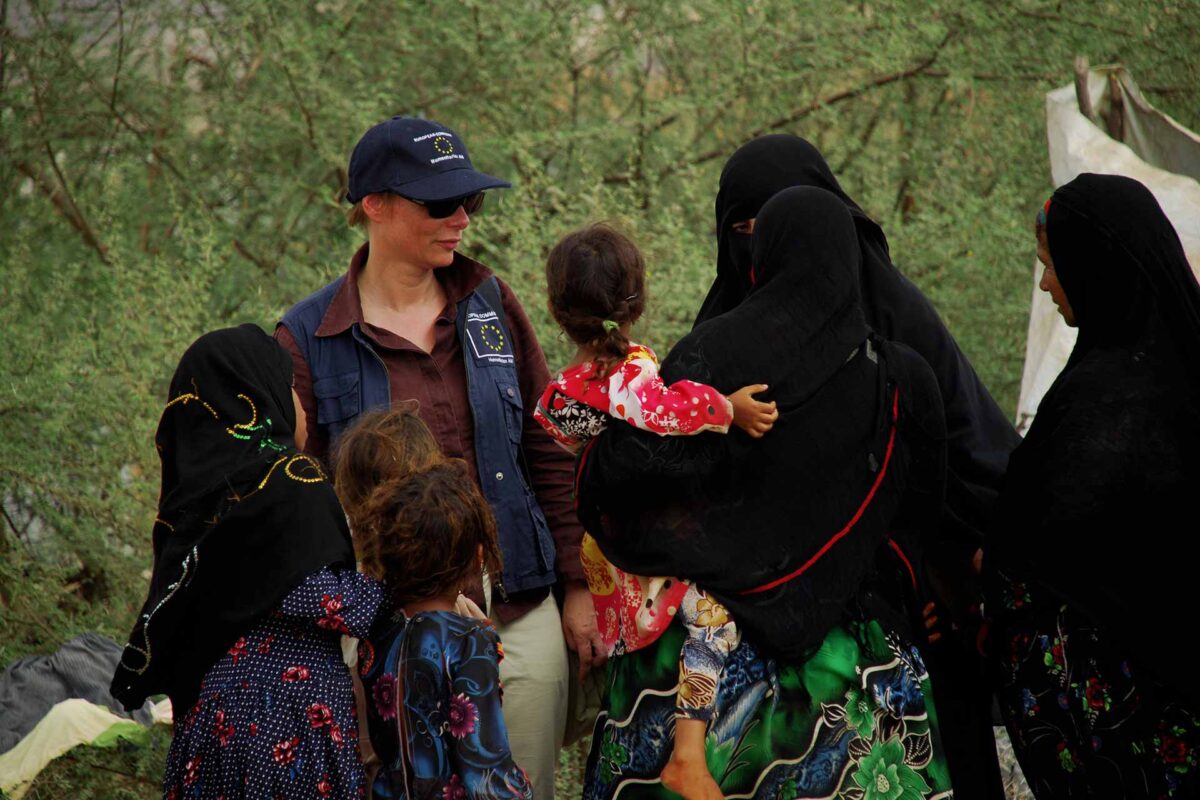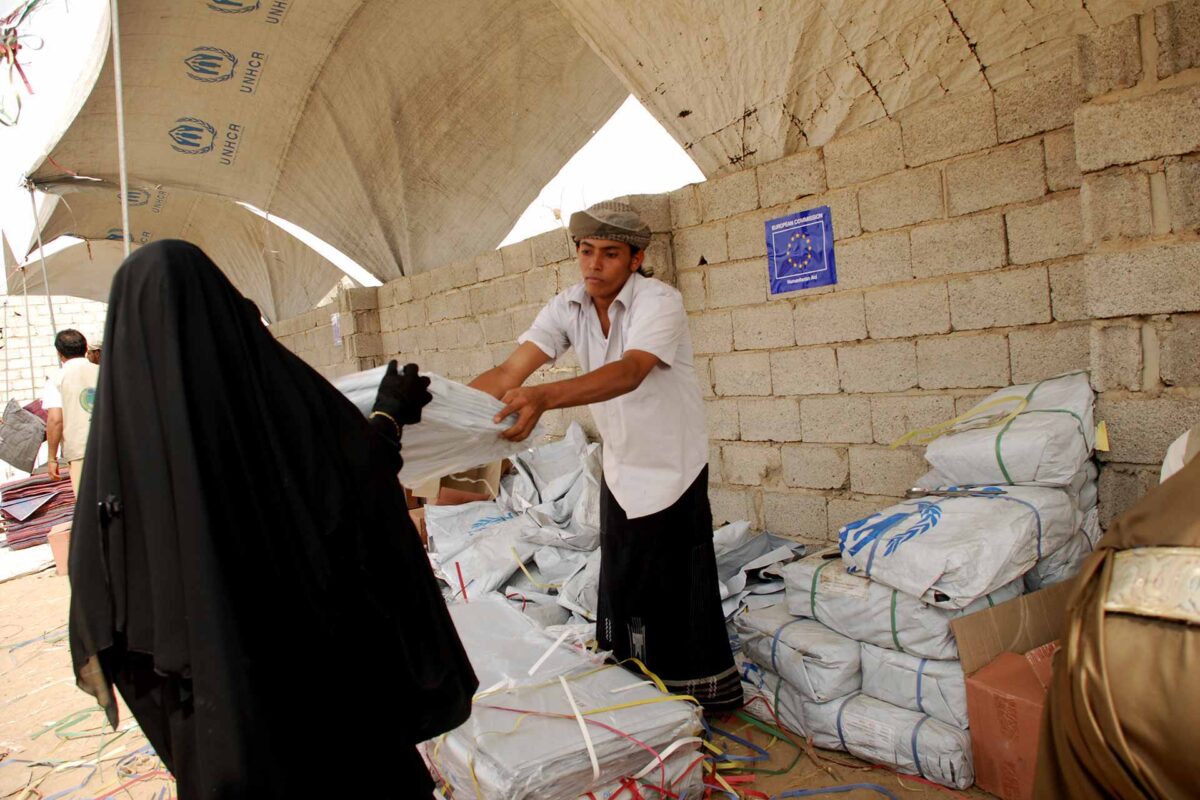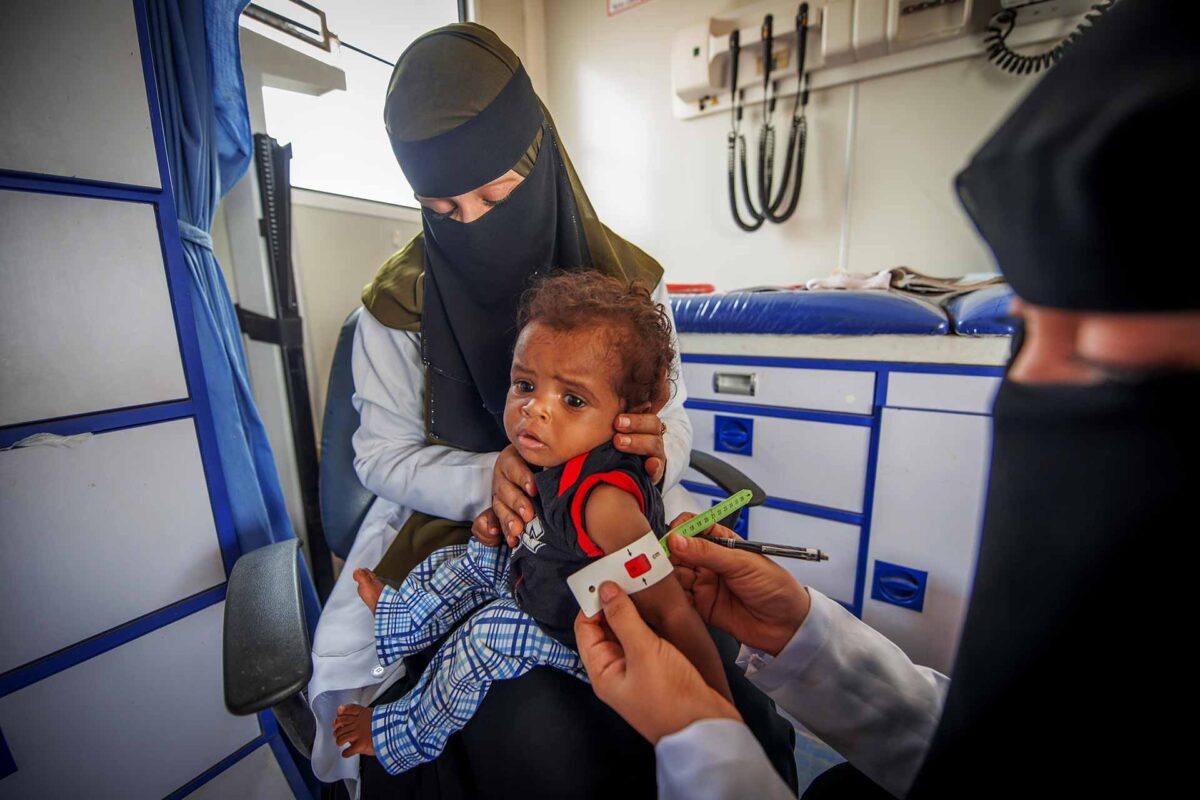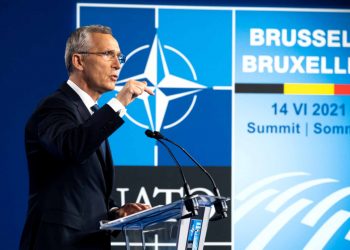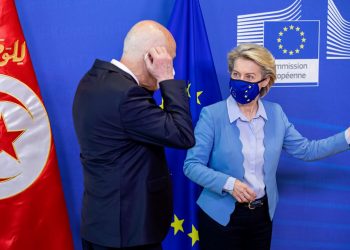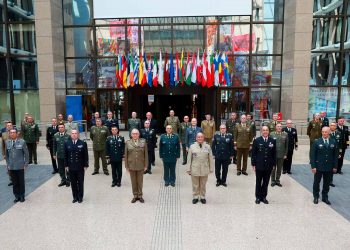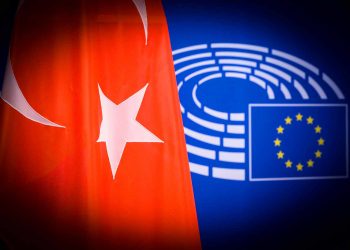EU debates humanitarian aid while action is facing an unprecedented set of challenges, exacerbated by the COVID-19 pandemic. Humanitarian aid needs are at an all-time high and the gap between global resources and requirements is increasing. According to the UN, almost 235 million people will require some form of assistance in 2021, an increase of 40% from 2020 and a near tripling since 2014.
Meanwhile, basic principles are being tested as rarely before, with attacks against civilians, hospitals and schools steadily increasing every year. These violations of International Humanitarian Law are making the delivery of aid more difficult whilst also limiting the ability of EU partners to assist affected people. In light of these trends, the Commission believes it is necessary to set out a new strategic outlook for how the EU can address these challenges, in line with its role as the world’s leading humanitarian donor, along with the EU’s Member States.
EU Humanitarian aid since 1992
The European Commission has been providing humanitarian aid since 1992 in over 110 countries, reaching millions of people across the globe each year.
The humanitarian assistance funded by the EU is delivered in partnership with UN agencies, international organisations and NGOs. EU humanitarian aid covers intervention areas such as: food and nutrition, shelter, healthcare, water and sanitation and education in emergencies. A large network of Commission’s humanitarian experts in over 40 countries worldwide enables close monitoring of crisis situations and relief operations.
The funding for humanitarian aid operations is intended for countries outside of the EU. The European Commission can also fund emergency support operations to respond to disasters of exceptional scale within the European Union.
New Humanitarian Action plan
The Commission has proposed to strengthen the European Union’s global humanitarian impact in order to meet the substantially rising humanitarian needs exacerbated by the COVID-19 pandemic. The Communication proposes a series of key actions to expedite the provision of humanitarian aid by expanding the resource base, supporting a better enabling environment for humanitarian partners and addressing the root causes of crises through a ‘Team Europe’ approach. It highlights a renewed focus on international humanitarian law (IHL) and also sets out to tackle the dramatic humanitarian impact of climate change.
High Representative/Vice President, Josep Borrell, said: “Today, the average humanitarian crisis lasts more than 9 years, some even longer. Many risk being ‘forgotten’ such as Yemen or Syria. But the EU does not forget. Humanitarian aid is one of the most tangible examples of the EU’s external action and proof of our solidarity. Respect for International Humanitarian Law must be at the heart of our foreign policy more than ever to support principled humanitarian action and to protect civilians as well as the humanitarian workers who risk their lives to protect them around the world.”
Average humanitarian crisis lasts more than 9 years
Commissioner for Crisis Management, Janez Lenarčič, said: “In a world where the footprint of crises is expanding rapidly and the principles of humanitarian aid are being challenged as rarely before, the EU’s global responsibility as a humanitarian actor has never been more important. This comes regrettably as needs rise to an all-time high but the global donor base remains disturbingly narrow. We need to deliver better, by boosting the efficiency and impact of our humanitarian action. We need to be able to react with full force as soon as crises emerge. This renewed strategic outlook spells out how the EU can step up to help those most in need and show leadership at a time when the delivery of principled aid is acutely needed.”
Building a new European Humanitarian Response Capacity
The EU will set up a new European Humanitarian Response Capacity in order to intervene directly in humanitarian crises, when traditional humanitarian delivery mechanisms via EU partners or their capacities may be ineffective or insufficient. This will aim to facilitate logistics including transport, enabling the pooling of resources and facilitating their deployment in the field. This capacity could, for instance, offer logistical assessments, support for initial deployment and procurement, stockpiling, transporting and/or distributing relief items, including COVID-19 vaccines and their delivery in fragile countries. It will work in coordination and complementarity with the EU Civil Protection Mechanism, relying on the operational support of the EU’s Emergency Response Coordination Centre.
Championing respect for International humanitarian law
Direct and often deliberate attacks by belligerents against civilians, hospitals and schools in violation of international humanitarian law are increasing. In 2019, 277 attacks against humanitarian aid workers, with 125 killed,according to reports. The EU will therefore put compliance with international humanitarian law even more firmly at the heart of EU external action to protect civilian populations. Concretely, the EU will:
– consistently monitor IHL violations,
– reinforce due diligence across all EU external instruments.
– continue ensuring that IHL is fully reflected in EU sanctions policy including through the consistent inclusion of humanitarian exceptions in EU sanction regimes.
Addressing root causes by harnessing synergies between humanitarian relief, development and peace building
Humanitarian aid on its own cannot tackle the complex underlying drivers of conflicts and other crises. The EU will therefore scale up its urgent relief efforts by closely delivering together with development and peace-building actors tackling the root causes of crisis and promoting long-term solutions for humanitarian emergencies.
Eurobarometer – strong citizen support for EU humanitarian action
In the run-up to the adoption of today’s Communication, the Commission gathered citizens’ opinions on EU humanitarian aid in the 27 Member States. The survey results show clear support for EU humanitarian action, with 91% of respondents expressing positive opinions on EU-funded humanitarian aid activities. Almost half of all respondents believe that the EU should sustain existing levels of support for humanitarian aid, whilst four in every ten individuals consider that funding should increase.
The European Union, together with its Member States, is the world’s leading humanitarian donor, accounting for some 36% of global humanitarian assistance.
Today, humanitarian aid is facing an unprecedented set of challenges. According to the United Nations, over 235 million people will require humanitarian assistance this year – representing one in every 33 individuals worldwide. This is an increase of 40% from 2020 estimation-needs and a near tripling since 2014. In parallel, the number of forcibly displaced people has also increased, reaching 79.5 million by the end of 2019.
Global gap between resources and requirements
At the same time, the gap between resources and requirements continues to expand. In 2020, UN humanitarian appeals jumped to almost €32.5 billion – the highest figure ever owing also to the impact of COVID-19 – while only €15 billion was provided in funding. And this global humanitarian funding gap is likely to grow further this year, which clearly calls for a broader donor base. In 2020, the top three donors – the US, Germany and the European Commission – provided 59% of reported humanitarian funding globally. Within the EU, just four Member States and the European Commission account for about 90% of its humanitarian financing.
EU humanitarian action will continue to be led by adhering strictly to the universal humanitarian principles of humanity, neutrality, independence and impartiality. As the next step, the Commission invites the European Parliament and the Council to endorse the Communication and to work together on the proposed key actions.

